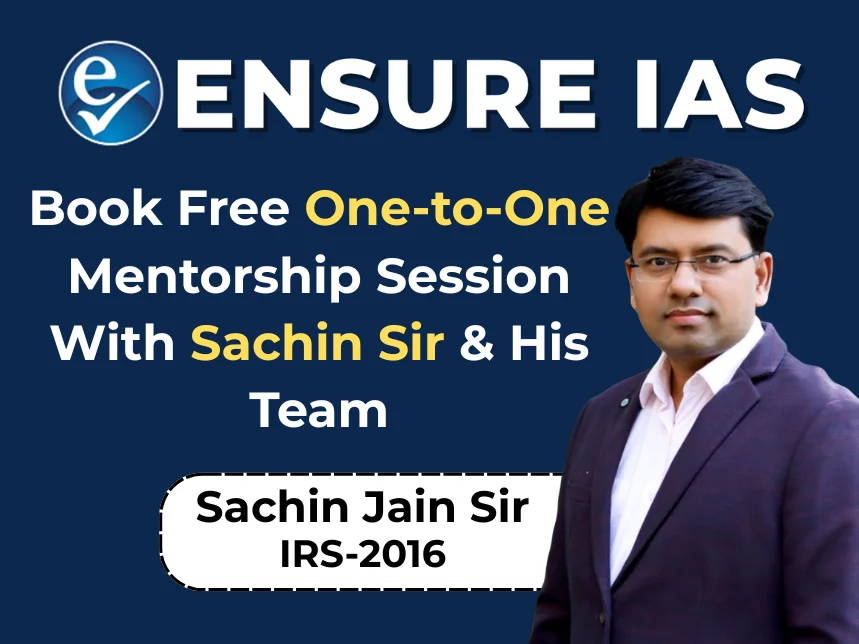Realization of True Fulfillment Beyond Money
- For many students, especially from top engineering, management, or foreign universities, landing a high-paying job is often seen as the ultimate goal. Packages worth ₹20–40 lakhs per annum become benchmarks of success. However, after joining these corporate roles, a significant number of young professionals begin to question the depth of their satisfaction.
- Daily routines start revolving around targets, KPIs, and performance metrics. Slowly, a sense of mechanical existence sets in. The luxury car, foreign trips, and gourmet meals begin to feel repetitive when work lacks purpose or impact.
- In contrast, when these professionals look at their college friends or batchmates who cleared the UPSC Civil Services Examination and are now serving as IAS, IPS, or IFS officers, a sense of inner calling often emerges.
- The authority to implement policies, bring social change, directly impact lives, and serve the country begins to outweigh the appeal of a corporate cubicle and big paycheck.
- This is not merely an emotional response—it is a deeply personal evaluation of long-term satisfaction. While money brings comfort, purpose brings peace.
- This shift in mindset becomes the catalyst for many well-settled professionals to leave plush salaries behind and take the bold step toward UPSC preparation.
Comparing Career Trajectories with Friends in Civil Services
- One of the strongest triggers for this career switch is peer comparison—and not the toxic kind. It’s a reflective one.
- Imagine an IIT or IIM graduate earning ₹30 LPA in a multinational company. One day, during a college reunion, they meet a former classmate who is now a District Collector. The comparison isn’t about salaries anymore—it’s about influence, impact, and respect.
- Civil servants are involved in:
- Disaster management
- Law and order maintenance
- Policy implementation
- Welfare scheme execution
- Meanwhile, corporate employees may feel detached from the real struggles of the country. The admiration and respect their civil servant friends receive from both society and the government create a moment of introspection.
- “Yes, I earn more than them—but are they doing more than me?” That single thought changes everything.
- Many professionals, even after working for 2–4 years in top roles, begin to feel that they have more potential than what they’re using. The UPSC becomes a route to fulfill that unused capability.
- Seeing peers exercise decision-making authority, transform lives at the grassroots, and be recognized as change-makers, sparks a sense of aspiration in them.
- This realistic evaluation pushes many toward the Civil Services dream, even if it means leaving behind their high-paying job.
Long-Term Security and Purpose Matter More Than Short-Term Gains
- While high salary packages look attractive, many professionals begin to notice that these roles often come with:
- High stress
- Long working hours
- Uncertainty due to market fluctuations
- Constant pressure to switch jobs or upskill
- On the other hand, the Civil Services offer lifetime job security, a defined promotion structure, pension benefits, and most importantly—a sense of purpose-driven life.
- Even the most high-paying private jobs are subject to company performance, mergers, or economic recessions. In contrast, an IAS or IPS officer works under constitutional protection, with a well-defined role and autonomy.
- The appeal of making a tangible difference—like ensuring food delivery to tribal children, building roads in rural areas, or maintaining peace in a riot-prone zone—is unmatched by any PowerPoint presentation in a boardroom.
- This sense of public accountability, long-term relevance, and national recognition become much stronger than financial lures.
- Those who have tasted corporate life begin to value job stability, societal impact, and inner contentment more than monetary growth.
- That’s why you’ll find many engineers, consultants, doctors, and even MBAs leaving behind ₹20–30 LPA jobs to prepare for UPSC with full dedication.
Internal Calling and the Desire to Contribute to Nation-Building
- For some, it’s not about dissatisfaction with their job—it’s about an inner calling.
- Even while earning lakhs per month, some professionals feel disconnected from their real purpose. They realize they want to be part of policy making, social reform, and national growth.
- The trigger could be a news report, a personal loss due to policy failure, an encounter with corruption, or a rural visit that exposes them to inequality. These experiences awaken a desire to be part of the solution, not just remain a spectator.
- The Civil Services provide a structured path to make this difference.
- Unlike NGOs or CSR projects, the IAS/IPS/IFS roles offer state-backed power, resources, and administrative control to bring sustainable change.
- Whether it’s framing a district education plan, leading a rescue mission, or negotiating international treaties, the scope of action is broad.
- People who are emotionally moved by these aspects feel the UPSC preparation is worth more than the salary they are leaving.
- They find meaning in reading Indian polity, history, or economics—not as a task, but as a step toward real change.
- This alignment between internal purpose and external opportunity makes UPSC more attractive than even the most lucrative corporate offer.
UPSC as a Life Goal: Better Late Than Never
- For some aspirants, UPSC was always a dream—but family expectations, peer pressure, or early job offers diverted them.
- Once they have financial stability or gain some work experience, the old dream returns, this time with more maturity and discipline.
- These professionals have seen both sides of life:
- The comfort of money
- The emptiness of material routine
- When they return to the UPSC track, they are better prepared mentally. They understand the value of time, know how to manage pressure, and have better analytical skills due to work exposure.
- They are willing to sacrifice short-term salary for the long-term goal they always wanted.
- Their decision is not emotional but strategic.
- Many toppers in UPSC were software engineers, consultants, researchers, or managers before they gave their first serious attempt—and cleared it.
- They bring to the exam hall:
- Real-life experience
- Confidence
- Emotional intelligence
- And more than anything, a deep hunger to fulfill their dream—this time, at any cost.
The Growing Trend of Professionals Cracking UPSC After Corporate Jobs
- In the last decade, a growing trend has emerged where professionals from top MNCs, startups, and public sector units are successfully transitioning to the UPSC Civil Services.
- These are not just isolated cases but part of a larger pattern. Every year, more than 30–40 toppers in the final merit list are former engineers, analysts, consultants, or tech leads who decided to pivot their careers toward administration.
- This shift signals that UPSC is no longer limited to arts or humanities graduates. It has become a natural destination for those seeking purpose, power, and policy-making roles.
- The success stories of candidates like:
- Anudeep Durishetty (IRS, later IAS) – a former Google employee
- Gaurav Agarwal – ex-IIM graduate and investment banker
- Tina Dabi – a Delhi University topper with corporate offers
- These examples create a ripple effect across the working class youth, showing that even after earning a stable income, it’s not too late to reinvent your career through UPSC.
- Coaching institutes now have special batches for working professionals, with weekend classes, online modules, and personalized mentorship.
- Social media has also played a role. Platforms like YouTube and Telegram are flooded with strategy videos, real success journeys, and free mentorship by ex-corporate UPSC toppers.
- The trend is fueled by:
- Dissatisfaction with monotony in private jobs
- Desire to be part of national governance
- Recognition of UPSC as a powerful, respected path
- This trend is not likely to slow down. As more people share their journeys, the mindset shift continues—showing that a ₹30 LPA package can be left behind for a ₹70K government job, simply because the job comes with respect, responsibility, and purpose.
FAQs: Why Do High-Salary Professionals Choose UPSC?
- Is it common for professionals to leave corporate jobs for UPSC?
Yes, many aspirants from IITs, IIMs, and foreign universities quit ₹20–30 LPA jobs for UPSC every year. - Is the decision worth the risk?
For many, yes. Civil services offer impact, job security, recognition, and satisfaction that no corporate job can match. - Does comparing with IAS/IPS friends influence such decisions?
Definitely. Seeing peers in powerful public roles often triggers deep reflection and inspires career changes. - Can someone prepare well after years in a job?
Absolutely. Working professionals often have better focus, maturity, and discipline compared to fresh graduates. - Is UPSC worth leaving a stable job?
If your goal is public service, long-term security, and meaningful work—then yes, it is. - What are the biggest motivators to make the shift?
- Purpose over profit
- Nation-building dream
- Peer inspiration
- Long-term fulfillment
- Does UPSC preparation require full-time effort?
Yes. Most who leave jobs commit full-time to preparation due to its vast syllabus and tough competition. - Is job security better in UPSC?
Civil Services offer constitutional protection, fixed promotions, and pension benefits—making it one of the most secure career options. - What’s the right time to quit a job for UPSC?
When you have mental clarity, basic savings, and a well-structured plan—it’s time. - Are corporate experiences useful in UPSC?
Yes. Skills like time management, decision-making, and problem-solving are highly transferable.







